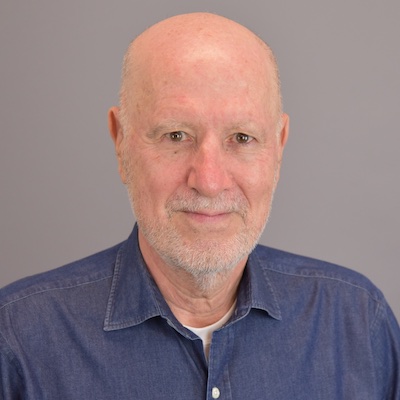Real-life route optimization problems are hard to solve
Route optimization problems are very hard problems to solve when dealing with realistically sized problem instances in last-mile delivery. The operations research literature has been covering the vehicle routing problem and its many variants extensively for decades and important advances have been achieved with regards to solution quality and computational cost.
However, there remains an important gap between theoretical route planning and real-life route execution that most optimization-based approaches are unable to bridge. This gap relates to the fact that in real-life operations, the quality of a route is not exclusively defined by its theoretical length, duration, or cost, but by a multitude of factors that affect the extent to which drivers can effectively, safely and conveniently execute the planned route under real-life conditions.


Tacit knowledge often contradicts optimized route plans
Experienced drivers have tacit knowledge about the geography, infrastructure, and consumers they deliver to. They know which roads are hard to navigate, when traffic is bad, when and where they can easily find parking, which stops can be conveniently served together, and many other things that are hard, if not impossible to formalize in an optimization model. This tacit information is therefore not contained in most route planning tools used in the industry, causing drivers to frequently deviate from originally planned route sequences. Taking into account their tacit knowledge, drivers follow a deviated actual route sequence instead, which is potentially more convenient under real-life operational conditions. Leveraging learning-based approaches to understand and anticipate these deviations can lead to more efficient and safer routes, more sustainable last-mile delivery operations, more satisfied drivers, and a higher service quality.
Objective of the Challenge
The goal of the Last Mile Routing Research Challenge is to encourage participants to develop innovative approaches leveraging artificial intelligence, machine learning, deep learning, computer vision, and other non-conventional methods to produce solutions to the route sequencing problem which outperform traditional, optimization-driven operations research methods in terms of solution quality and computational cost.
Given a large, realistic data set of delivery requests and their characteristics, participants will be asked to generate route sequences that perform well on a given set of performance metrics by learning from actual route sequences that were operated by actual experienced drivers.
All submissions will be evaluated based on a combination of the following three metrics: solution accuracy (i.e., proximity of predicted route sequences to actual high-quality route sequences), total route time (as a measure of route efficiency), and total computational time. The exact evaluation metrics will be disclosed to participants prior to the start of the Last Mile Routing Research Challenge.
The evaluation of submissions will be conducted by a team of domain experts at Amazon, being the host of the Last Mile Routing Research Challenge. They will be technically supported by a team of scientists at MIT. Evaluations will follow a widely automated, blind review process on a central server to provide a level playing field with regards to computational resources.
Amazon will provide participants with data containing more than 4,000 historical route sequences from multiple delivery stations in North America.
This data will include:
- Shipment-level information: delivery locations and physical shipment characteristics
- Transit information: travel distances and times
- Route-level information: date of route, route origin and vehicle characteristics
This set of historical route sequences will be divided into a training set and a test set, both of which will be disclosed to the participants at the beginning of the Last Mile Routing Research Challenge.
A separate data set with the same information for another 1,000 historical route sequences will be used to evaluate the performance of the proposed models. The actual route sequences for this data set will not be disclosed to the participants until after the Last Mile Routing Research Challenge has concluded.
Participants are welcome to use publicly available, non-proprietary data and software to improve the quality of their solutions, provided that the data and software used are available under an open-source license that is compliant with making the participant submissions available open-source under an Apache 2.0 or MIT license after the Last Mile Routing Research Challenge has concluded (see “Deliverables”).
Participants must disclose the data sources that were used in addition to the data provided by Amazon when submitting the results.
For more specific information on which external data sources may be used by participants in the course of the Last Mile Routing Research Challenge, please refer to the detailed participation rules that Amazon will require participants to agree to upon registration for the Last Mile Routing Research Challenge:
All participants will be asked to share the results of applying their models to a set of publicly available test instances. Moreover, participants need to submit the code implementation of their approach to the organizers of the Last Mile Routing Research Challenge for it to be deployed on a centralized server and blind-evaluated on a set of evaluation instances, which will only be released publicly after the Last Mile Routing Research Challenge has concluded. The submitted code will need to adhere to specific technical guidelines which will be provided before the start of the Last Mile Routing Research Challenge to ensure that results can be properly reproduced by the evaluation team.
All participants further agree to make their code available publicly under an Apache 2.0 or MIT open-source license after the Last Mile Routing Research Challenge has concluded.
All competing teams will need to provide a short technical paper that describes the methodological approach, model formulation, solution approach, and numerical results. Selected teams may be asked to give a short (virtual) presentation on their work.
For more details on these deliverables and their respective deadlines, please refer to the time line on the main page of this website as well as the participant agreement that Amazon will require participants to sign upon registration for the Last Mile Routing Research Challenge: <link to PDF of participation rules>
Learn more about the Challenge
Eligibility and Rules
Awards and Incentives
Registration
Challenge Updates
Stay informed
Be first in line when registration opens and get the latest updates.
About the Team
The Last Mile Routing Research Challenge is hosted by Amazon.com and scientifically supported by a team of researchers from the MIT Center for Transportation & Logistics.

Dr. Julian Pachon
Director WW Last Mile Science at Amazon

Dr. Daniel Merchán
Senior Research Scientist at Amazon

Prof. Yossi Sheffi
Director, MIT Center for Transportation & Logistics
Elisha Gray II Professor of Engineering Systems at MIT

Dr. Matthias Winkenbach
Director, MIT Megacity Logistics Lab
Director, MIT CAVE Lab